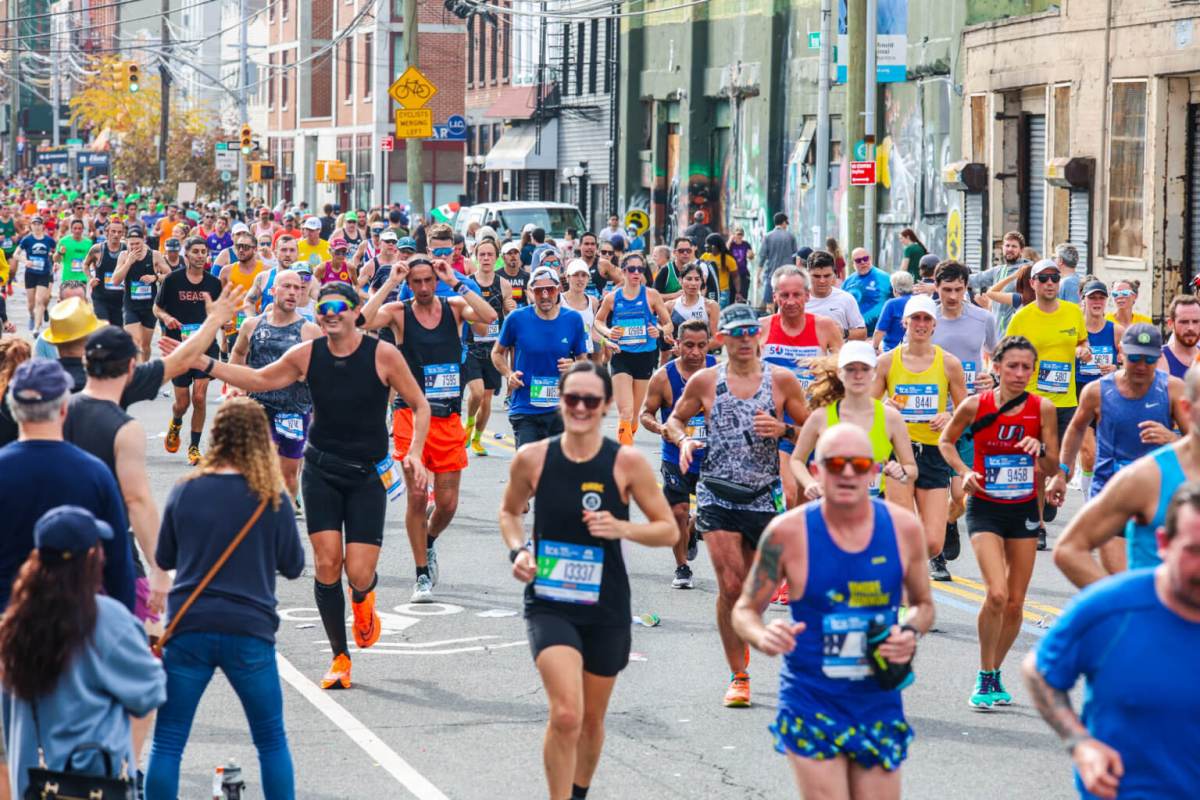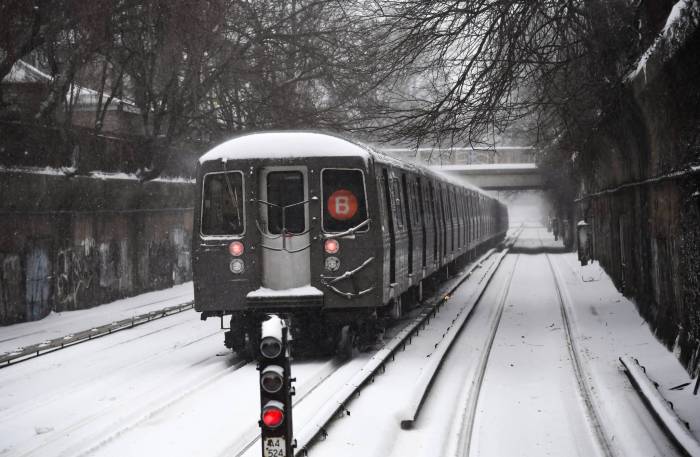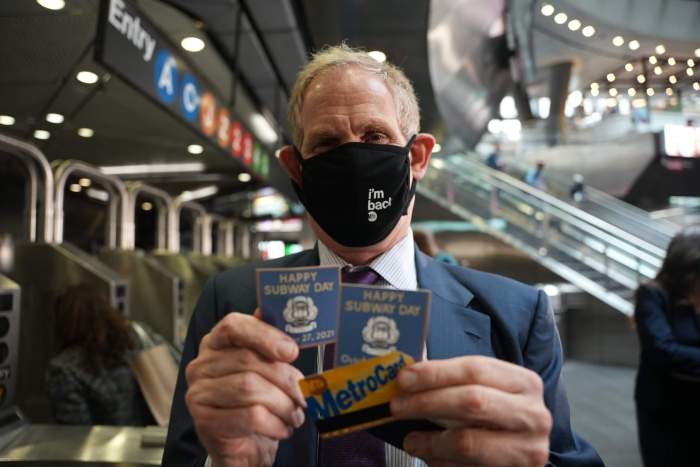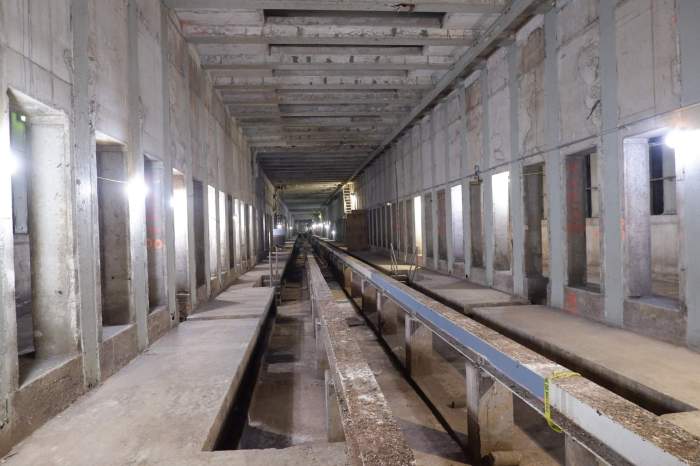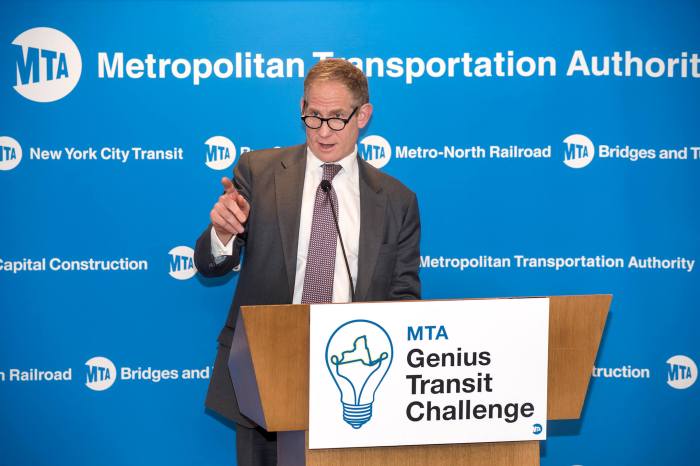The marathon runners weren’t the only ones moving in the Big Apple this past weekend.
Subway ridership on Saturday and Sunday, coinciding with the New York City Marathon, topped pandemic-era weekend records, reaching 2.45 million riders on Saturday and 2.1 million on Sunday, the day of the big race.
That’s well above the ridership seen on Marathon Day last year, and about 85% of the total ridership on the day of the last pre-pandemic Marathon in 2019.
“The city and the region are built on the success of mass transit,” Lieber said. “You always hear me say that for New York, mass transit is like air and water, we need it to survive.”
Some 50,000 runners participated in the 26.2-mile road race through the five boroughs on Sunday, the first at full capacity since 2019 after being canceled in 2020 and scaled down in 2021 due to the COVID-19 pandemic. The race — won by Sharon Lokedi and Evans Chebet, both of Kenya — was also watched by upwards of 3 million spectators itching for a glimpse of the runners in motion, Lieber said.
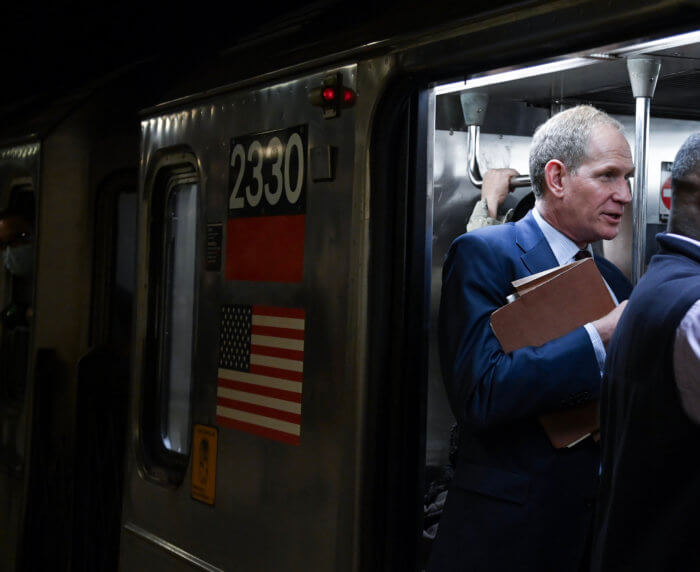
“Can you imagine this weekend being possible, without people being able to jet around on the subway? Not possible,” the transit honcho remarked. “A five-borough marathon, with 50,000 runners and 3 million spectators, in the most densely populated city in the country, just does not work without great mass transit.”
New Yorkers have been steadily returning to buses, subways, and commuter rail since the doldrums of the pandemic, but ridership has languished at around two-thirds of pre-pandemic levels for months, even as car traffic in the Big Apple has almost completely returned to baseline. MTA brass have argued that the rise of working from home has made it difficult to bring back customers who no longer have to commute daily to an office.
Weekend ridership has usually been closer to pre-pandemic levels than weekday ridership, which the MTA has suggested means people are taking mass transit for recreational trips even as the commute to work dwindles.



